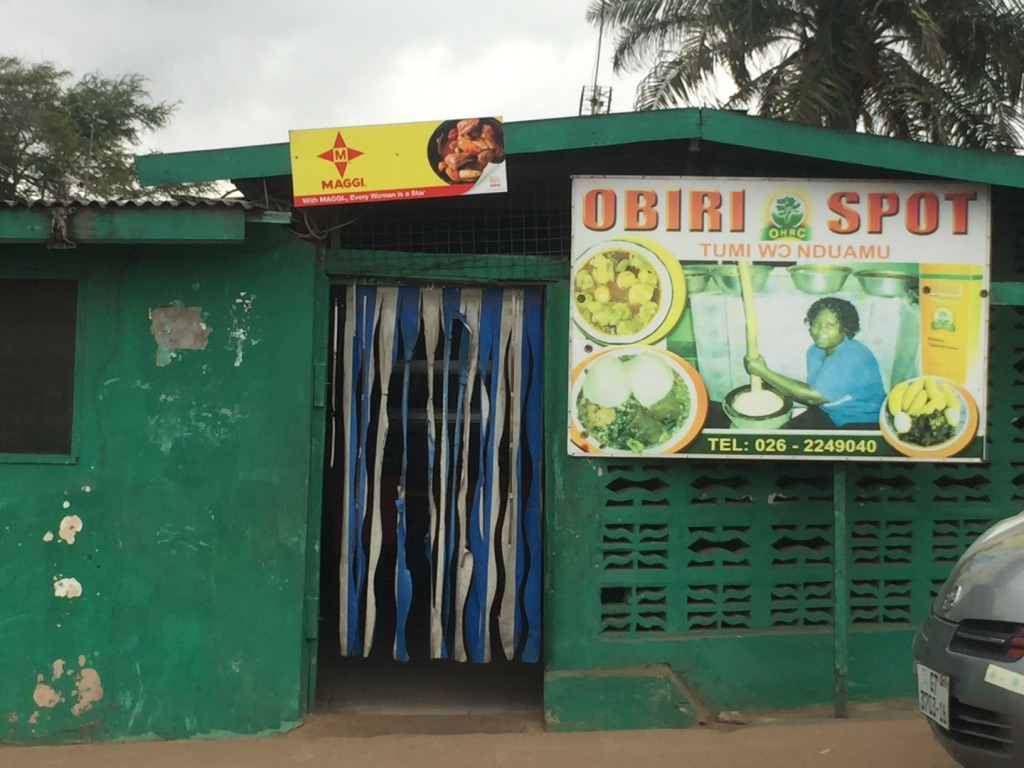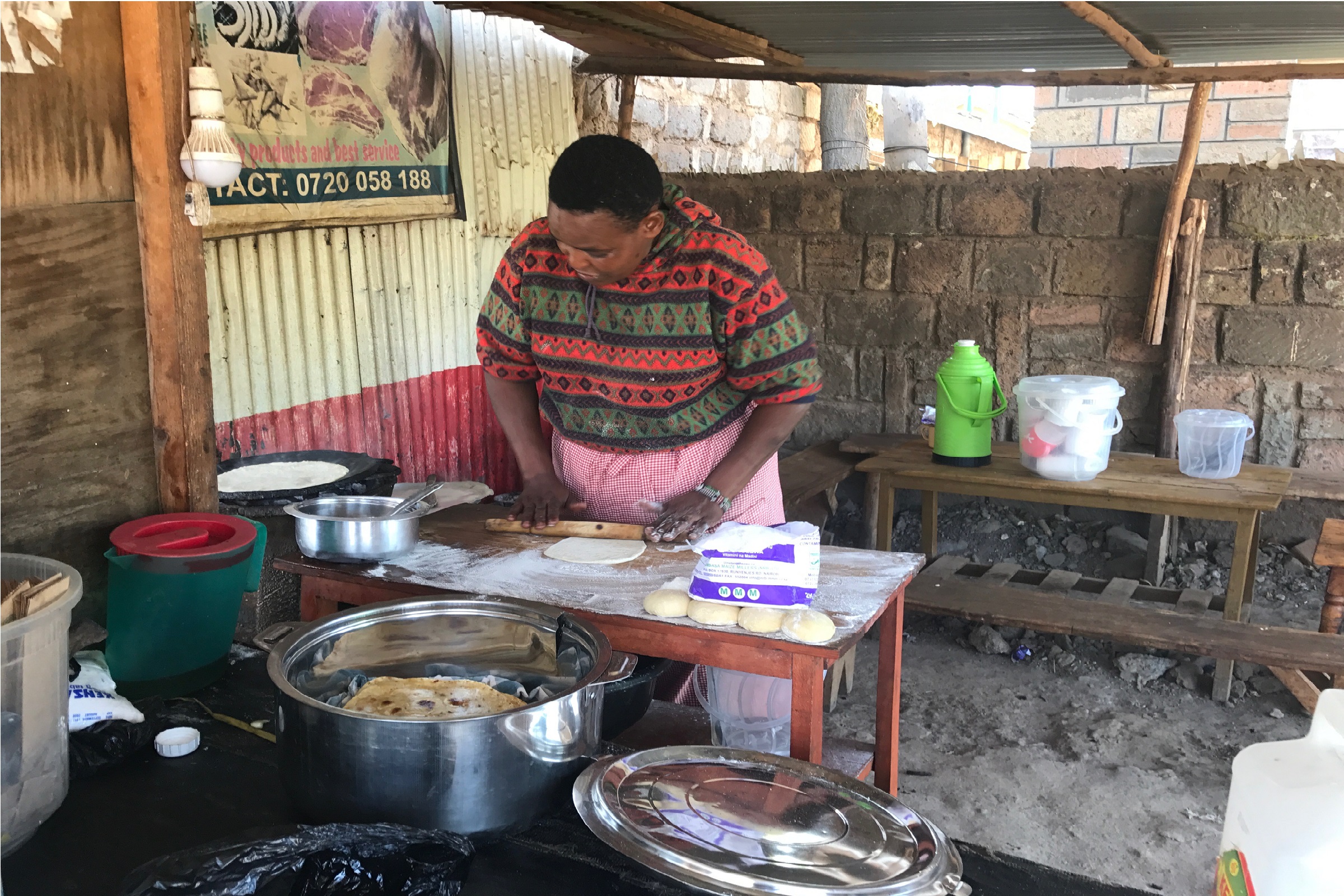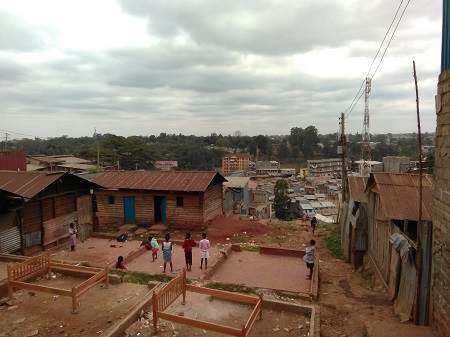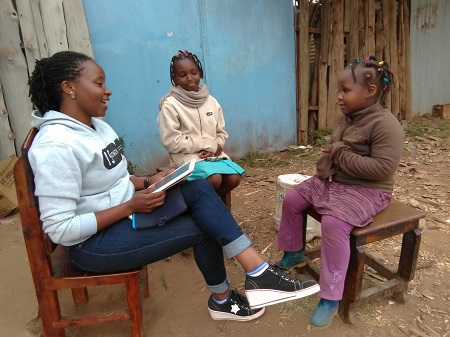Changing diets change the world: World Cities Day 2018 On World Cities Day, discover connections between growing cities, diets, and global sustainability

The Division for Strategic Public Relations has published a magazine titled Future Society Initiative: Society 5.0 and the University of Tokyo. The magazine highlights some of the research projects at UTokyo registered under the university’s Future Society Initiative (FSI), a framework to bring together ongoing research projects that contribute to the United Nations Sustainable Development Goals (SDGs). The following article, an expansion of that in the magazine, takes an in-depth look at one researcher who is actively tackling challenges related to health and urban development.

A woman stands at a bench using a rolling pin to shape dough in Nairobi, Kenya. Urbanization can change the types of foods individuals choose to purchase, prepare, and consume. © 2018 Alexandros Gaspartos.
Sushi from Japan, hamburgers from America, moussaka from Greece: each country has classic national foods. But as our societies change, our everyday diets also change. Urbanization, globalization, and cultural transformation can all be significant forces that shape what we eat. However, individual meal choices affect population health, food security, natural ecosystems, and global climate.
Associate Professor Alexandros Gasparatos from the University of Tokyo Integrated Research System for Sustainability Science (IR3S) and his students study the factors that influence individual or local decisions, and how these decisions affect global sustainability.
The lab's most recent project is a study of urban dietary transitions in four rapidly changing African cities. People eat differently as any city grows and transforms. Changes in income or food prices are some reasons that are easy to identify, but there are many other interrelated factors influencing diet choices that are connected to complex changes within these cities. For example, during the process of urbanization, open-air markets stocked with local produce lose market share to new supermarkets with electric freezers filled with imported meat. Cooking traditional time-intensive food becomes less practical than buying prepared meals and access to electricity alters what types of foods can be cooked in houses.
Localized changes in diets can have far-reaching effects. What we eat can affect individual and national food security, physical health, how land is used and what crops are grown, national imports and exports, and international supply chains. Our meal choices can also have profound ramifications for natural ecosystems, water use, and greenhouse gas emissions.
Preparing the questions

Associate Professor Alexandros Gaspartos leads a team of researchers studying issues of sustainability and urbanization, including a dietary transitions project in Accra, Ghana and Nairobi, Kenya (seen here, summer 2018). © 2018 Alexandros Gaspartos.
Before departing Tokyo, Gasparatos and his students carefully structure their surveys and sampling approach to collect data about the diets of individuals, as well as demographic characteristics of households, and indicators of poverty and food security. They must design an international study that grapples with the complexities of implementing a survey in cities with little existing data from local governments, complicated logistics due to limited urban planning and extensive traffic, multi-generational family households with numerous small income sources, and asking people to remember what they ate years ago.
"Japan is well-known for its aging population, but most African countries are actually very young countries. It can be difficult to find someone who is old enough to remember what they ate 20 years ago. So even for something that simple we have to adjust our data collection," said Gasparatos.
"Doing this type of research is extremely complicated as African cities experience radically different urbanization patterns compared to other world regions, and at the same time exhibit high levels of malnutrition and obesity," he explained.
Asking about food choices

Researchers interview households around Nairobi as part of their surveys to understand dietary transitions in urban areas. ©2018 Alexandros Gaspartos.
Data collection for the urban dietary transitions project started in summer 2018 when doctoral students Alice Karanja from Kenya, and Abubakari Ahmed and Eric Brako Dompreh from Ghana traveled to Accra, Ghana and Nairobi, Kenya. When their work is finished, nearly 1,500 households in the two cities will have been surveyed about their current diets, what they ate 10 years ago, and their reasons for these changes. Joint work with research partners will continue the surveys in Lilongwe, Malawi and Maputo, Mozambique in 2019.
To interview these 1,500 households across two cities, Karanja, Ahmed, and Dompreh will hire, train and supervise teams of four to five local residents to deliver the surveys. These local surveyors will be trained to ask the questions, to record answers with electronic tablets, and to observe a strict sampling approach to select a random and representative sample of households. The use of digital technology allows researchers to stay in contact with the surveyors in real time and for team members at UTokyo to assist in data quality assurance even while the in-country team continues to collect responses.
Their data analysis will identify the relationships between multiple impacts: food security, climate, gender, poverty, and potentially other unexpected issues. Perhaps the most intractable challenge is then deciding how to act on the results.
"If anyone ever says that a decision is a win-win, I know they have not looked at the data closely enough or the system broadly enough. With so many issues related in so many different ways, something is always going to lose out. As sustainability researchers, we can identify these trade-offs and offer the results of our impact assessments, but at some point we just have to say, 'It's your country; you must decide what is most important,'" said Gasparatos.
With a growing number of international sustainability experts graduating from the University of Tokyo every year, those decisions may not be easier, but will be better informed.
International sustainability projects
The impact assessment methodologies that Gasparatos and his students use can be applied to a wide set of sustainability problems. Gasparatos was trained as an experimental chemist, but was drawn towards environmental issues.
"Eventually, I started working in sustainability, which sounds very different from chemistry. But our sustainability impact assessments are intricate and require decisions about so many complicated, interrelated factors. Designing questions to get the data we need reminds me of a long chemistry experiment protocol," said Gasparatos.
His lab at the University of Tokyo opened in November 2013 and his first PhD student graduated in September 2018. He now supervises 10 PhD students and three Master's students, all of whom are from outside of Japan and study sustainability topics in 11 different countries. The projects range from indigenous socioeconomic networks in Panama, to timber logging in Malaysia, to the climate effects of green roofs in Tokyo. Previous projects have included studies of industrial crops in Africa that involved local stakeholders to discuss what the results of the project mean for their community's future.
"We have no agenda; we just want to know if, how, and why people's choices or environmental decisions are changing and what that means for global sustainability," said Gasparatos.
Interview/Text: Caitlin Devor






